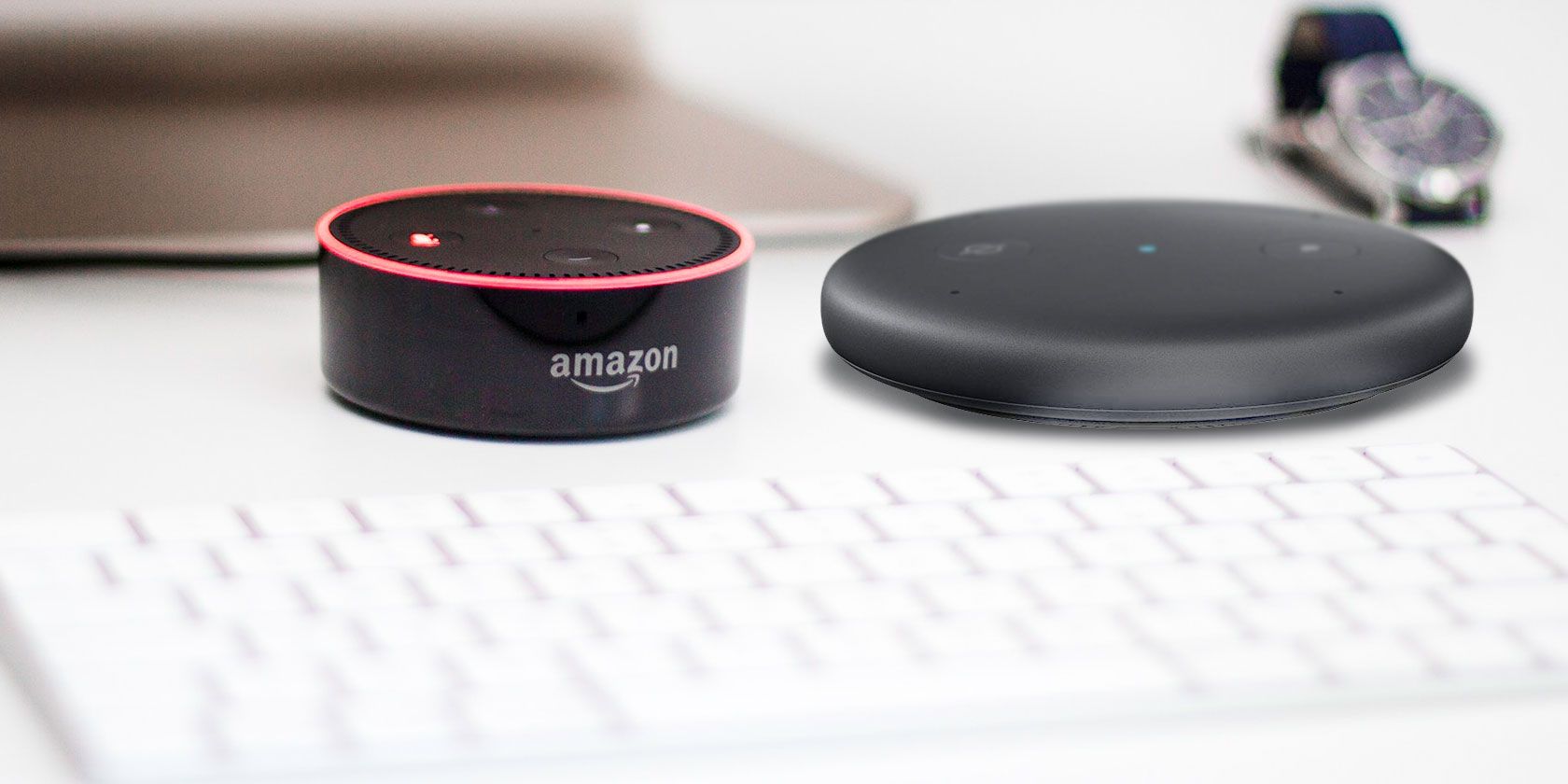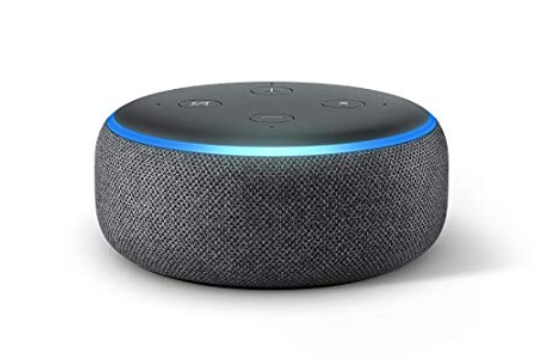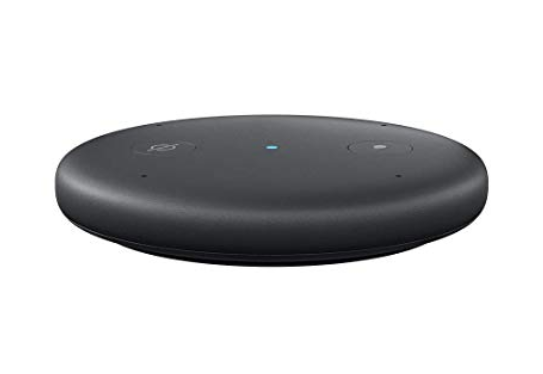Although other options are available, the most popular way to interact with Amazon Alexa is via an audio speaker.
Amazon manufactures the three Echo speakers (the Dot, the Echo, and the Echo Plus) for precisely this purpose. But the company also makes the Echo Input.
What are the differences between the Echo Dot and the Echo Input? Which is the best speaker for an Echo Input? And which solution is right for you?
What Is the Amazon Echo Input?
The Amazon Echo Input is mainly aimed at people who have old "dumb" speakers in use around their homes.
Much like the Chromecast Audio brought wireless streaming to people's non-smart speakers, the Echo Input adds Amazon Alexa capabilities to any speaker.
The speaker to which you want to connect the Echo Input needs to either support Bluetooth connectivity or have a 3.5mm headphone jack.
Unfortunately, that means the Echo Input cannot connect to Wi-Fi-only speakers (like the original Sonos line-up). Nor is it compatible with speakers that use A/V cables to connect to amps and other audio equipment.
Amazon Echo Input vs. Echo Dot: Cost
In the United States, the price difference between an Echo Input and an Echo Dot is about $15. You can typically pick up the Input for around $35 and the Dot for $50. For reference, the full-size Amazon Echo speaker costs $100, and the Echo Plus is $150.
Outside the US, some buyers have complained that the Echo Input is the same price as the Echo Dot. In some cases, users have reported that the Input is actually more costly.
Given that you can upgrade an Input to a Dot for a few extra dollars, it raises the question of why you would buy an Echo Input.
Benefits of an Amazon Echo Input
Despite the similar cost of the Amazon Echo Input and the Echo Dot, there are lots of times when owning an Input might be more beneficial.
Sound Quality
Sure, the range of Amazon Echo speakers provide decent sound. But they're not on the same level as the top-of-the-range products from Bose, Sonos, Bang and Olufsen, or any of the other luxury speaker brands.
Therefore, if you already own an expensive hi-fi system, you're not going to replace it with Amazon Echo speakers just to have access to Alexa.
An Echo Input lets you maintain your sound quality while still being able to take advantage of the benefits of Alexa.
Add Music Streaming Capabilities
The Amazon Echo Input doesn't only offer Alexa. It also lets you stream services like Spotify, TuneIn Radio, Google Play Music, and Pocket Casts directly to your speaker.
If you want to be able to listen to Spotify on your old speakers without using a wired headphone connection, an Echo Input is the way to go.
Portability
The Echo Input and the Echo Dot are both small enough to be considered portable.
For reference, the Input is 3.1 x 3.1 x 0.5 inches (80 x 80 x 13.8mm) and the Dot is 3.9 x 3.9 x 1.7 inches (99 x 99 x 43mm).
However, from a weight standpoint, there's no contest. The Echo Input weighs 2.75 ounces (78 grams); the Echo Dot clocks in at 10.6 ounces (300 grams).
Furthermore, if you're in a position---perhaps because of your job---where you frequently need to stream content on public speakers while you're on-the-go, the Input is the better choice.
Power Consumption
As you would expect, the Echo Dot---as a speaker---uses considerably more power than the Echo Input. The current third-generation Dot pulls 15W of power, up from 9W on the second generation. The Input only uses 5W.
For comparison, the most expensive Echo product, the Plus, uses 30W.
Accordingly, if your use case is such that you don't need an additional speaker in the area where you want to access Alexa, it makes financial sense to opt for the Echo Input.
Best Speaker for Echo Input
If you're looking for an Echo Input speaker to pair with your device, there are a few great picks to choose from.
Here are three of the best Echo Input speakers
1. Bose SoundLink Mini II
At 1.5 pounds in weight, the Bose SoundLink Mini II is small enough to throw in a travel bag but beefy enough to offer stunning sound. It also has a low center of gravity, meaning it's tough to knock over while you're on-the-go.
As is fairly standard for small portable speakers, the SoundLink Mini II offers hands-free calling. It can provide 10 hours of battery life.
2. Bang and Olufsen Beoplay A1
The Bang and Olufsen Beoplay A1 is another of the best Bluetooth speakers for an Echo Input.
It's ultra-portable (it only weighs 1.3 pounds (600 grams)) and yet can achieve an impressive maximum output of 140W.
If you own two Bang and Olufsen Beoplay A1, you can wirelessly pair them for stereo sound.
3. UE Boom 3
The last Echo Input speaker we'll recommend is the UE Boom 3. It is the lightest of the three speakers (1.3 pounds), has a water and dust resistance rating of IP67, a 30-foot range, and 15 hours of battery life.
Uniquely, you can also personalize your UE Boom 3 thanks to a large selection of patterns and colors.
Amazon Echo Dot vs. Echo: The Winner
As it's fully functioning speaker, the Echo Dot is clearly the better all-around product. But in truth, the two products are targeting a different market---they offer different solutions for different problems.
The Echo Input is trying to fulfill the space vacated by the Chromecast Audio. Google took the surprising decision to cease production in early 2019. The company has been tight-lipped on whether a replacement product is in the pipeline, though a new Google Home Mini 3 with a 3.5mm output is rumored to be on the release list for late 2019.
And remember, if our list of Echo Input speakers didn't provide you with a solution, you can always check out our lists of the best Bluetooth speakers and the best portable speakers.



